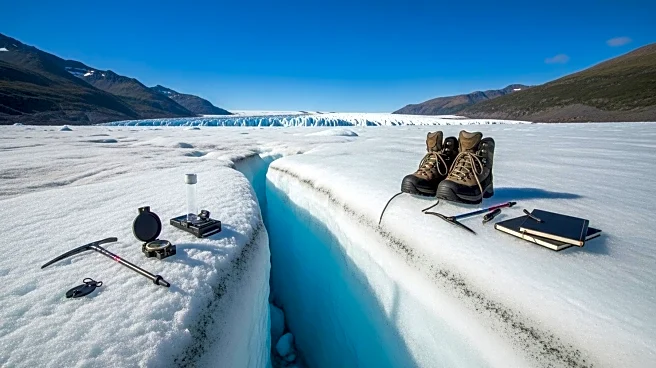What's Happening?
Italian scientist Riccardo Pozzobon tragically died after falling into a meltwater stream and being swept into an ice shaft on the Mendenhall Glacier in Alaska. The incident occurred on September 3, and rescue attempts were deemed too dangerous. The Mendenhall Glacier, part of the Juneau Icefield, has been experiencing significant meltwater events, including a recent glacial lake outburst flood. These floods occur when water trapped in glacier ice is suddenly released, causing potential damage to surrounding areas. The glacier's melting is part of a broader trend of ice melt impacting global sea levels and public health.
Why It's Important?
The death of Pozzobon highlights the dangers faced by scientists studying glacial environments and the broader implications of ice melt. Melting glaciers contribute to rising sea levels, which can lead to flooding in coastal areas and impact global weather patterns. Additionally, melting ice can release ancient pathogens, posing public health risks. The incident underscores the urgent need for addressing climate change and its effects on glacial regions, as well as the importance of safety measures for researchers in these environments.
What's Next?
Efforts to mitigate ice melt may involve increased research into geoengineering and renewable energy solutions. The scientific community may advocate for stronger climate policies to address the root causes of glacial melting. Additionally, there may be initiatives to improve safety protocols for researchers working in hazardous environments. The global community may focus on collaborative efforts to reduce carbon emissions and protect vulnerable ecosystems.










